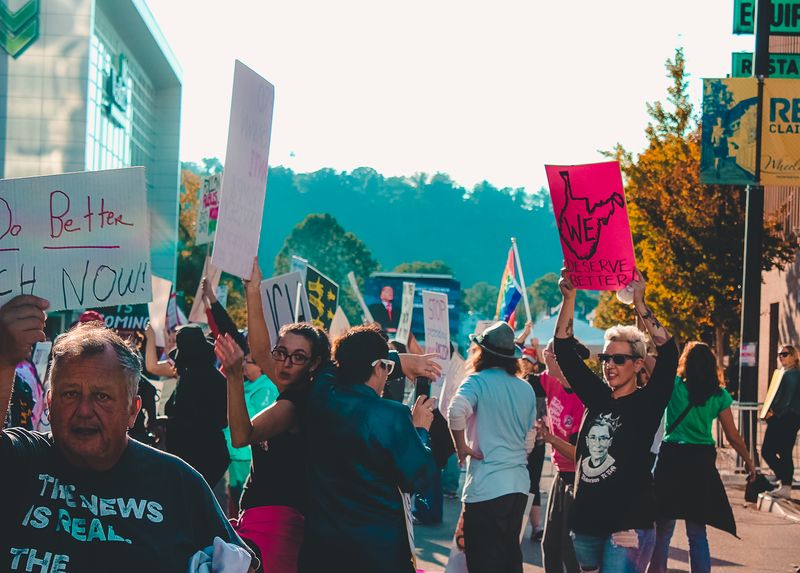Understanding the History and Significance of Juneteenth
Juneteenth, the holiday commemorating the end of slavery in the United States, has recently gained national attention with President Biden signing legislation to make it a federal holiday. As discussions around the history and significance of Juneteenth deepen, a recent event at Texas A&M University-Corpus Christi shed light on the roots and legacy of this important day.
The Cultural Significance of Juneteenth
Assistant Professor of History, Le’Trice Donaldson, delivered a keynote address at the university’s first Juneteenth soiree, emphasizing the cultural significance of the holiday. Donaldson highlighted the fact that Black people have always been active participants in securing their rights, despite their contributions to American history being diminished.
Donaldson stated, “Juneteenth endures as an acknowledgement of both the failures and the promises of America. This isn’t just Black history; this is American history.” This statement underscores the importance of recognizing and understanding the full impact of Juneteenth in the broader context of the nation’s history.
A Brief History of Juneteenth
To fully appreciate the significance of Juneteenth, it is essential to delve into its historical origins. The holiday, celebrated on June 19th each year, originated from the events that unfolded on June 19th, 1865, when Union troops arrived in Galveston, Texas, to enforce the Emancipation Proclamation.
At the time, Texas had become a refuge for slaveholders from other states seeking to evade the emancipation of their slaves. The enslaved population in Texas had rapidly expanded, and the state refused to accept that the Civil War had ended and that slavery had been abolished. It took the arrival of Union troops to ensure freedom for enslaved people in Texas.
Donaldson highlighted the crucial role played by thousands of Black Union soldiers who fought for their own freedom. The first “Jubilee Day” commemorating June 19th, 1865, was held the following year. It included celebrations with parties, food, and sporting events, signifying a new chapter of freedom.
Juneteenth‘s Evolution and Impact
Throughout the years, Juneteenth evolved and impacted various communities across Texas. In 1872, Black churches and community groups in Houston raised funds to establish Emancipation Park, providing a dedicated location for Juneteenth celebrations.
During the early 20th century, Juneteenth festivities grew to include commemorations, cultural gatherings, and political engagement. Black Texans secured federal grant funding for “The Hall of Negro Life,” an exhibit at the 1936 Texas Centennial, which coincided with Juneteenth.
With the civil rights movement in the 1960s, Juneteenth gained renewed significance as a way to honor the historical struggle for freedom and equal rights. It served as a platform for African Americans to enhance their political participation and assert their contributions to US history.
In the 1970s, Juneteenth celebrations shifted toward emphasizing pride and cultural heritage. African Americans took an active role in constructing their citizenship within US political culture by reclaiming public spaces and affirming their collective memory.
Juneteenth Becomes a Federal Holiday
The recent recognition of Juneteenth as a federal holiday in 2021 marks a new milestone in its history. This notable development reflects a growing acknowledgment of Juneteenth‘s significance and the dedication to upholding its legacy as part of the American narrative.
Editorial: The Continued Relevance of Juneteenth
Juneteenth serves as a powerful reminder of the ongoing struggle for equality and freedom. Its recognition as a federal holiday is an important step towards acknowledging the historical injustices faced by Black Americans and promoting a comprehensive understanding of American history for all citizens.
We must remember that the struggle for equal rights did not end with the Emancipation Proclamation or the Civil Rights Act. Juneteenth symbolizes the enduring fight for justice and serves as a call to action for individuals and communities to work towards creating a more inclusive and equitable society.
By commemorating Juneteenth, we honor the resilience, strength, and cultural contributions of Black Americans. It is a day to remember and reflect on the progress made, but also a reminder that there is still work to be done in dismantling systemic racism and ensuring true equality for all.
Advice: Engaging with Juneteenth
As Juneteenth gains wider recognition, it is crucial for individuals to educate themselves about its history, attend celebrations, and engage in meaningful conversations. Here are a few steps you can take to engage with Juneteenth:
Learn about Juneteenth‘s history:
Take the time to learn about the origins and impact of Juneteenth. Read books, watch documentaries, and explore online resources that provide a comprehensive understanding of this significant holiday.
Attend Juneteenth celebrations and events:
Participate in local Juneteenth celebrations in your community, where you can engage with the rich cultural heritage and learn directly from Black organizers, artists, and speakers. These events often feature educational activities, artistic performances, and opportunities for meaningful dialogue.
Support Black-owned businesses and organizations:
Use Juneteenth as an opportunity to support Black-owned businesses and organizations in your community. By consciously directing your financial support towards these establishments, you can contribute to the economic empowerment of the Black community.
Engage in conversations about racial equality:
Juneteenth is an ideal time to engage in conversations about racial equality, justice, and the ongoing fight against racism. By actively listening and participating in these conversations, you contribute to a broader dialogue that can lead to meaningful change.
Reflect on personal biases and take action:
Use Juneteenth as an opportunity for self-reflection. Examine your own biases and preconceptions and challenge yourself to take action in dismantling systemic racism. This could involve supporting anti-racist organizations, advocating for policy changes, or engaging in allyship with marginalized communities.
By actively engaging with Juneteenth, we can honor its historical significance, promote inclusivity, and work towards a more just society for all.

<< photo by Viktoria B. >>
The image is for illustrative purposes only and does not depict the actual situation.
You might want to read !
- Celebrating Juneteenth: Embracing Freedom and Unity as One America
- Justin Thomas: Reflecting on the “Lowest I’ve Felt” After a Disappointing 81
- A Nun’s Praise: Dodgers Score Points with Handling of Pride Night Controversy
- USMNT Vs. Mexico: Confronting Homophobia in Sports
- “United States Braces for Severe Storms: One Texas Town’s Battle Against Mother Nature”
- A Closer Look at Kourtney Kardashian’s Pregnancy Announcement: Excitement, Reactions, and Speculations
- “Pregnant Surprise: Kourtney Kardashian Drops News to Travis Barker at Blink-182 Concert”




